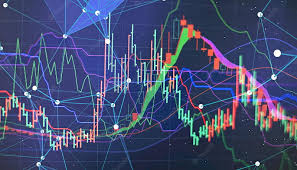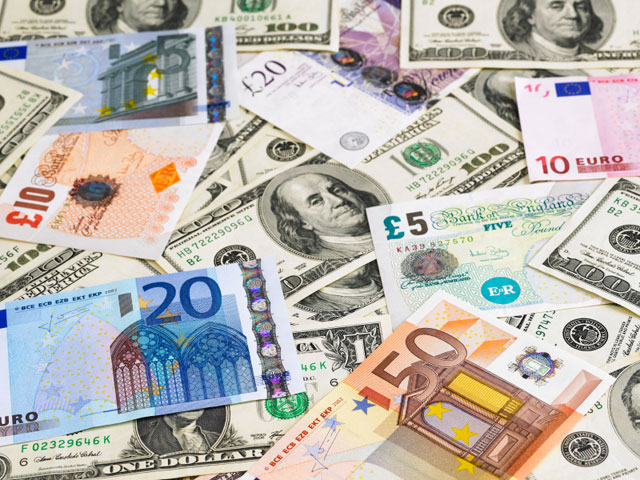The international market for buying and selling currencies is known as forex trading, or foreign exchange trading. With more than $7 trillion transacted every day, it is the biggest and most liquid financial market in the world. To profit from fluctuations in exchange rates, forex traders swap one currency for another in pairs, such as EUR/USD (Euro/US Dollar) or USD/INR (US Dollar/Indian Rupee).
The fundamental concept is to purchase money at a discount and resell it at a premium, or the opposite. For instance, you could purchase EUR/USD if you think the euro will appreciate versus the US dollar. You profit when you sell if the value of the euro rises.
London, New York, Tokyo, and Sydney are among the major financial cities where forex trading is open twenty-four hours a day, five days a week. Banks, governments, businesses, and private citizens are all traders.
Forex trading is permitted but controlled in India. Only brokers that are registered with SEBI are permitted to trade specific INR-based currency pairs, such as USD/INR.
Risk management, strategy, and skill are necessary for forex trading. It carries the danger of loss even as it presents potential for profit, particularly when leverage is used. Before investing real money, novices should begin with a demo account and adequate instruction.
How Forex Trading Works:
Buying one currency and selling another at the same time is how forex trading operates. Pairs of currencies are traded, such as EUR/USD, which indicates that you are purchasing euros and selling US dollars. Profiting from fluctuations in exchange rates is the aim.

The Euro gained strength against the Dollar, therefore if you purchase EUR/USD at 1.1000 and it rises to 1.1200, you can sell it and profit.
The decentralized global market where forex trading takes place is open twenty-four hours a day, five days a week, and spans time zones from Asia to Europe to the United States. Using an online platform or app offered by a broker allows you to trade without physically visiting a bank.Leverage, or borrowing money from the broker to manage a larger trade, is a common tactic used by traders. This raises the possibility of making money, but it also raises the danger of losing money.
You can maintain positions for a longer period of time or trade short-term, like day trading. Traders use tools including indicators, news updates, and charts to aid in decision-making. Before using real money, the majority of novices begin by practicing on a demo account.
All things considered, forex trading involves time, making wise decisions, and comprehending market patterns.
When Can You Trade Forex?
Because forex trading is open twenty-four hours a day, five days a week, traders can trade whenever they choose. In Asia, the market begins on Monday morning, whereas in New York, it closes on Friday evening. Sydney, Tokyo, London, and New York are its four main trading sessions. There are instances when these sessions overlap, which leads to increased activity and greater trading chances. The busiest, for instance, is the London-New York overlap. Traders from all over the world can select a time that works for their schedule because the forex market is always active during the week, whether they prefer early mornings or late nights.
Is Forex Trading Legal in India?
- In India, it is allowed to trade forex, however there are some guidelines and limitations. To safeguard Indian investors, the Securities and Exchange Board of India (SEBI) and the Reserve Bank of India (RBI) oversee the market. Only SEBI-registered Indian brokers, such as Zerodha, Upstox, or ICICI Direct, are permitted to trade in currency pairs that contain the Indian Rupee (INR), such as USD/INR, EUR/INR, GBP/INR, and JPY/INR.
- It is illegal for Indian citizens to trade foreign currencies on international platforms, such as EUR/USD or GBP/JPY, and doing so may be against the Foreign Exchange Management Act (FEMA) regulations. These regulations are in place to safeguard retail traders from unregulated brokers and prevent unlawful fund transfers.
- Therefore, it is legal to trade forex in India as long as you use a licensed Indian broker and only trade the permitted currency pairs. Before beginning, make sure your broker is authorized by SEBI.
Tools Every Forex Trader Needs:
- You need the appropriate tools in order to trade forex successfully. Start with a dependable trading platform that allows you to place trades and study charts, such as MetaTrader 4 (MT4) or MetaTrader 5 (MT5). To keep tabs on significant news events that have the potential to influence the market, use an economic calendar. You can read price trends with the use of technical indicators such as moving averages, MACD, and RSI. To control the amount of risk you take on with each trade, you need a risk calculator. Additionally, newbies must have a demo account for practicing. Together, these resources can help you trade more effectively and maintain control.
Fundamental vs Technical Analysis:

Technical and fundamental analysis are the two primary methods of market analysis used in forex trading. To determine why a currency may rise or fall, fundamental analysis considers the wider picture, including interest rates, inflation, economic growth, and political developments. Technical analysis, on the other hand, employs price charts, patterns, and indicators (such as moving averages, MACD, or RSI) to forecast potential future market movements. Technicals are used to determine the optimum entry and exit positions, while fundamentals are used to comprehend long-term patterns. Many successful traders combine the two. Both are helpful resources for improving trading judgments.
Pros & Cons of Forex Trading:
- There are risks associated with forex trading, but there are also great opportunities. On the plus side, you can trade whenever it’s convenient for you because the forex market is open twenty-four hours a day, five days a week. Its high liquidity allows for rapid trades and the efficient use of leverage with even modest money. Additionally, there are a ton of free tools and educational materials on the internet.
- But there are drawbacks as well. Because it can raise both earnings and losses, forex trading is dangerous, particularly when leverage is used. Emotional decisions frequently result in mistakes, and the market can be erratic and turbulent. Learning the right tactics takes time, and success doesn’t happen right away. Additionally, only regulated brokers are allowed to trade INR-based currency pairs in India.
- In summary, if you’re cautious, knowledgeable, and dedicated to lifelong learning, forex trading can be lucrative.
Conclusion:
Learning, practice, and discipline are the keys to being a good forex trader. With its potential for profit, flexible hours, and worldwide currency trading, the forex market presents fascinating options. However, it also calls for emotional restraint, patience, and appropriate risk management. Many novice traders rush into the market in the hopes of making rapid money, but the true secret is to learn how the market functions, create a sound trading strategy, and follow it.
It’s crucial to use brokers registered with SEBI and trade only INR-based pairings in order to stay within the law in India. Always begin with a demo account, keep refining your approach, and learn from your failures.
Similar to a skill, forex trading improves with practice, education, and time. You can develop into a knowledgeable and self-assured trader with the correct attitude and resources. Remind yourself to manage your risks, trade sensibly, and never stop learning. That is the real route to sustained success.

